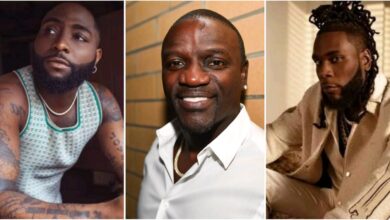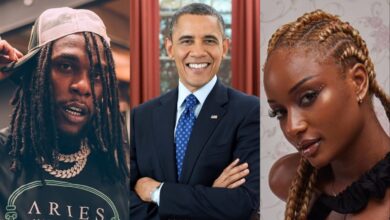Reggae, dancehall, others face extinction as afrobeat dominates Nigerian music


At the turn of the century, dancehall and reggae were among the most popular musical genres in Nigeria. However, afrobeat has currently practically taken over the music business.
Some music lovers are concerned that other subgenres may soon become extinct because of how famous afrobeat has grown.
Reggae was the cornerstone of Nigerian music at its zenith. Audiences both at home and abroad were enthralled by Majek Fashek, Ras Kimono, Victor Essiet (from “The Mandators”), Evi Edna Ogoli, and Peterside Ottong, among others. Reggae’s subgenre of dancehall rose to popularity between the end of the 1990s and the start of the 2000s.
Dancehall developed became a potent voice that spoke out against societal problems and poor government. It was especially well-liked in Lagos’ Ajegunle neighborhood, a ghetto noted for being a creative haven. Due to musicians like Daddy Showkey, Marvellous Benji, Raymond King, and Junglist who all produced accompanying dance movements, the two additional reggae adaptations and subgenres of ragga and galala also saw a boom.
In the new millennium, which was also characterized by the growth of rap and hip hop, the Plantashun Boyz, who consisted of 2face Idibia, Blackface, and Faze, initiated a revolution that saw the new sound take over for more than a decade.
Rap and pop music rotated on the music scene for nearly ten years as there was an explosion of talent.
On the crowded stage, notable acts included Tuface, Eedris Abdnulkarim, Styl-Plus, Trybesmen, Zulee Zoo, D’Banj, and P-Square. The Nigerian music scene, all things considered, was searching for its own identity.
Afrobeat was a pivotal turning point in Nigerian music, and within a decade, individuals who would carry out the shift began to emerge, with early pioneers like D’banj and P-Square among them.
Amazingly, fans of other genres who have abandoned the music they are innately drawn to in favor of experiencing the new fusion that has become the sound of Africa find Afrobeat to be very appealing.
A notable example is Patoranking, who started out in reggae music before soon switching to afrobeat. The king of highlife, Flavour Nabania, has recently become interested in afrobeat.
Even fuji artists like Wasiu Ayinde Marshal, nicknamed K1 the Ultimate, Pasuma, Alao Malaika, and Osupa Saheed collaborate with Afrobeat performers.
Burna, Wizkid, Kizz Daniel, Tecno, Davido, KC, Rema, Ayra Starr, Tems, Tiwa Savage, Joeboy, Asake, Ruger, Fireboy DML, and Bnxn are some current Afrobeat musicians. The list goes on and on.
Afrobeat also rules the charts both domestically and internationally. Thanks to Burna Boy, it has given Nigeria its first Grammy. It is now used to describe Nigerian music. It is the musical style used by Nigerian artists on international platforms, like Tiwa Savage at King Charles III’s coronation and Davido for the Qatar 2022 World Cup anthem.
However, the majority of music fans are baffled by how Afrobeat keeps expanding while other genres are declining.
Femi Joshua, a well-known music executive based in Abuja, asserted that social media’s impact was crucial to the stratospheric ascent and widespread appeal of afrobeats.
He said: “Nigerian artists in the past largely relied on radio and television stations to market their music and earn notoriety. Social media has brought about a digital revolution in the music business, allowing artists to succeed without relying primarily on conventional media platforms.
He added that musicians no longer need radio airplay to become famous or break through. Instead, social media platforms like Instagram, Twitter, and YouTube have been instrumental in exposing artists to a wider audience, increasing the possibility that their music will become viral and bring in more money.
“Artists now have a direct pathway to success, transcending geographical limitations, with social media’s vast reach and the ability to connect directly with fans,” he added.
Afrobeat’s appeal, according to well-known musician DJ Slixm, is a result of its versatility.
He emphasized, for example, how the repeated beats and patterns of dancehall are a flaw that has contributed to the genre’s waning popularity.
He claimed that because the genre lacked originality and new sounds, listeners began looking for other musical experiences. As a result, other genres like afrobeat emerged that provide a wide variety of sounds and styles.
It is unclear if reggae and dancehall, two formerly popular musical genres, will rise to prominence or quietly vanish as Afrobeat continues to change and mold the Nigerian musical scene.





